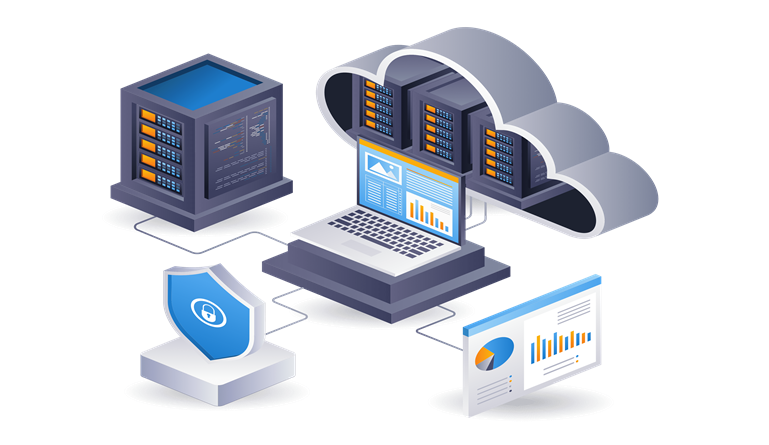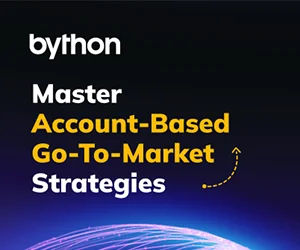In recent years, the financial technology (fintech) industry has experienced unprecedented growth and innovation. At the heart of this transformation lies cloud computing, a technology that has revolutionized how fintech companies operate, scale, and secure their operations. Cloud computing offers fintech firms the ability to rapidly deploy services, scale their infrastructure on-demand, and implement robust security measures to protect sensitive financial data.
This blog post delves into the intricate relationship between cloud computing and fintech, exploring the critical aspects of scalability and security that are reshaping the financial services landscape. We’ll examine how cloud technologies enable fintech companies to innovate at pace while maintaining the highest standards of data protection and operational resilience.
Understanding Cloud Computing in Fintech
Key Characteristics of Cloud Computing
Before we dive into the specifics of cloud computing in fintech, it’s essential to understand the fundamental characteristics that make cloud computing so valuable to the industry:
- Scalability: The ability to quickly scale resources up or down based on demand.
- Flexibility: The option to choose from various service models and deployment options.
- Pay-as-you-go pricing: Cost-effective model where companies only pay for the resources they use.
- Remote accessibility: Access to services and data from anywhere with an internet connection.
- Reliability: High availability and redundancy to ensure continuous operation.
- Security: Advanced security features and compliance certifications.
These characteristics form the foundation of cloud computing’s appeal to fintech companies, enabling them to operate more efficiently and adapt quickly to market changes.
The Intersection of Cloud Computing and Fintech
The fintech industry has embraced cloud computing to drive innovation and streamline operations. Here are some examples of how fintech applications leverage cloud technologies:
- Mobile banking platforms: Cloud-based infrastructure allows banks to offer seamless mobile experiences to customers.
- Payment processing systems: Cloud computing enables real-time payment processing and fraud detection at scale.
- Robo-advisors: AI-powered investment advice platforms run on cloud infrastructure to analyze market data and provide personalized recommendations.
- Blockchain and cryptocurrency services: Cloud computing supports the distributed nature of blockchain networks and cryptocurrency exchanges.
- Lending platforms: Cloud-based lending solutions use big data analytics to assess creditworthiness and automate loan approvals.
By leveraging cloud computing, fintech companies can rapidly prototype, test, and deploy new services, giving them a competitive edge in a fast-paced market.
Scalability Considerations in Fintech Cloud Computing
Importance of Scalability in Fintech
Scalability is crucial in the fintech sector for several reasons:
- Handling variable workloads: Fintech applications often experience significant fluctuations in user activity, especially during peak financial periods or market events.
- Supporting business growth: As fintech companies expand their user base or enter new markets, their infrastructure needs to grow seamlessly.
- Improving customer experience: Scalable systems ensure consistent performance and responsiveness, even during high-traffic periods.
- Enabling innovation: A scalable infrastructure allows fintech firms to experiment with new services and features without worrying about capacity constraints.
Types of Scaling in Cloud Environments
Cloud computing offers different scaling approaches to meet the diverse needs of fintech applications:
- Vertical Scaling
Vertical scaling, also known as “scaling up,” involves adding more resources (such as CPU, RAM, or storage) to existing servers. This method is suitable for applications that require more power on a single node.
Benefits for fintech:
- Simplicity in implementation
- Improved performance for resource-intensive operations like complex financial calculations
Limitations:
- Physical limitations on how much a single server can be scaled
- Potential downtime during upgrades
- Horizontal Scaling
Horizontal scaling, or “scaling out,” involves adding more servers to the existing pool of resources. This approach is ideal for distributing workloads across multiple machines.
Benefits for fintech:
- High availability and fault tolerance
- Ability to handle large volumes of transactions
- Easier to scale massively
Example: A payment processing system that can add more servers during holiday shopping seasons to handle increased transaction volumes.
- Diagonal Scaling
Diagonal scaling combines both vertical and horizontal scaling strategies. This approach allows fintech companies to optimize their infrastructure for both performance and cost-effectiveness.
Benefits for fintech:
- Flexibility to scale up or out as needed
- Balanced approach to resource allocation
- Cost optimization by choosing the most efficient scaling method for each scenario
Examples of Scalable Fintech Solutions
- Stripe: The payment processing platform uses cloud infrastructure to handle millions of transactions daily, scaling horizontally to manage peak loads during major shopping events.
- Robinhood: The stock trading app leverages cloud computing to scale its user-facing services and back-end systems, ensuring smooth operation even during periods of high market volatility.
- Revoluta: This digital banking platform uses cloud services to scale its infrastructure across multiple countries, supporting rapid expansion and introducing new financial products.
Security Considerations in Fintech Cloud Computing
The Importance of Security in Fintech Operations
Security is paramount in fintech due to the sensitive nature of financial data and the potential impact of breaches:
- Protection of customer data: Fintech companies handle personal and financial information that must be safeguarded against unauthorized access.
- Compliance requirements: The finance industry is heavily regulated, with strict data protection and privacy laws.
- Reputation and trust: Security breaches can severely damage a fintech company’s reputation and erode customer trust.
- Financial implications: Data breaches can result in significant financial losses, both in terms of immediate costs and long-term business impact.
Cloud Computing Security Measures
Cloud service providers offer a range of security measures to protect fintech applications and data:
- Encryption: Data encryption in transit and at rest to prevent unauthorized access.
- Firewalls: Advanced firewalls to protect against network-based attacks.
- Identity and Access Management (IAM): Granular control over user access and permissions.
- Compliance certifications: Cloud providers often maintain certifications for various financial regulations (e.g., PCI DSS, SOC 2).
- Distributed Denial of Service (DDoS) protection: Built-in defenses against large-scale attacks.
- Regular security audits and updates: Continuous monitoring and patching of vulnerabilities.
Challenges in Maintaining Cloud Security
Despite robust security measures, fintech companies face several challenges in maintaining cloud security:
- Data breaches: The constant threat of sophisticated cyberattacks targeting financial data.
- Insider threats: Risks posed by employees or contractors with access to sensitive systems.
- Evolving cyber threats: The need to stay ahead of new and emerging security vulnerabilities.
- Third-party risk: Managing security risks associated with external vendors and partners.
- Multi-cloud complexity: Ensuring consistent security across different cloud environments.
To mitigate these challenges, fintech companies should:
- Implement a comprehensive security strategy that includes regular risk assessments.
- Provide ongoing security training for employees.
- Use advanced threat detection and response systems.
- Conduct thorough due diligence on third-party vendors.
- Implement a unified security management platform for multi-cloud environments.
(Also Read: What Is Cloud Accounting – All You Need to Know)
Ensuring Compliance with Regulatory Requirements
Compliance is a critical aspect of fintech operations. Cloud providers can assist in maintaining compliance, but fintech companies retain ultimate responsibility. Key considerations include:
- GDPR: Ensuring proper handling and protection of personal data for European users.
- PCI DSS: Maintaining compliance for payment card data security.
- SOC 2: Demonstrating proper controls for handling financial information.
- Local financial regulations: Adhering to specific requirements in different jurisdictions.
Fintech companies should:
- Clearly define compliance responsibilities between themselves and cloud providers.
- Regularly audit their systems and processes for compliance.
- Use compliance-specific tools and services offered by cloud providers.
- Stay informed about changes in regulatory requirements and adapt accordingly.
Disaster Recovery and Business Continuity Planning
-
The Role of Cloud in Disaster Recovery
Cloud computing plays a crucial role in disaster recovery for fintech companies:
- Data redundancy: Cloud providers offer multiple data center locations for redundant storage.
- Automated backups: Regular, automated backups of critical data and systems.
- Rapid recovery: The ability to quickly spin up resources in case of a disaster.
- Geographical distribution: Data and applications can be distributed across multiple regions for added resilience.
-
Business Continuity in the Cloud
To ensure business continuity, fintech companies can leverage cloud services through:
- Real-time data replication: Continuously sync data across multiple locations.
- Failover systems: Automatically switch to backup systems in case of primary system failure.
- Geographically distributed data centers: Spread operations across different regions to mitigate local disasters.
- Regular testing: Conduct frequent disaster recovery drills to ensure the effectiveness of continuity plans.
Innovations in Cloud Computing for Fintech
-
Serverless Computing
Serverless architecture is gaining traction in fintech for its ability to improve scalability and reduce costs:
- Benefits: Automatic scaling, pay-per-execution pricing, and reduced operational overhead.
- Use cases: Event-driven processes like real-time fraud detection or transaction processing.
- Considerations: Careful design is needed to handle stateful operations common in financial applications.
-
AI-Driven Security Solutions
Artificial Intelligence is enhancing cloud security in fintech:
- Anomaly detection: AI algorithms can identify unusual patterns in user behavior or transaction data.
- Threat intelligence: AI-powered systems can analyze vast amounts of data to predict and prevent security threats.
- Automated response: AI can trigger automated responses to potential security incidents, reducing response times.
Example tools:
- IBM Watson for Cyber Security
- Darktrace for Enterprise Immune System
- Cylance for AI-based endpoint protection
-
Sustainable Cloud Solutions
Sustainability is becoming increasingly important in fintech operations:
- Energy-efficient data centers: Cloud providers are investing in renewable energy and improving data center efficiency.
- Optimized resource utilization: AI-driven resource allocation can reduce energy waste.
- Carbon footprint reporting: Some cloud providers offer tools to monitor and report on the carbon footprint of cloud usage.
Fintech companies can balance sustainability with performance by:
- Choosing cloud providers with strong sustainability commitments.
- Implementing efficient coding practices to reduce resource consumption.
- Utilizing serverless and containerization technologies to optimize resource use.
Integration and Implementation Challenges
-
Data Integration in Cloud Environments
Fintech companies often face challenges in integrating data across different systems:
- Data silos: Legacy systems may not easily connect with cloud-based platforms.
- Data consistency: Ensuring data accuracy and consistency across multiple cloud services.
- Real-time synchronization: Maintaining up-to-date data across various applications and databases.
Solutions and best practices:
- Implement a robust API strategy for seamless data exchange.
- Use cloud-native integration platforms (iPaaS) to connect different services.
- Adopt data governance frameworks to ensure data quality and consistency.
- Leverage event-driven architectures for real-time data synchronization.
-
Application Integration in the Cloud
Integrating various fintech applications within a cloud environment presents several challenges:
- Interoperability: Ensuring different applications can communicate effectively.
- Performance optimization: Managing the performance impact of integrating multiple services.
- Security considerations: Maintaining security across integrated applications.
Strategies for smooth integration:
- Use microservices architecture to build modular, easily integrable applications.
- Implement a service mesh for managing communication between services.
- Utilize cloud-native monitoring and logging tools for end-to-end visibility.
- Adopt DevOps practices to streamline integration and deployment processes.
-
Vendor Lock-In and Multi-Cloud Strategies
To mitigate the risks of vendor lock-in, fintech companies can consider multi-cloud strategies:
- Benefits: Increased flexibility, reduced dependency on a single provider, potential cost optimizations.
- Challenges: Increased complexity, potential security risks, need for specialized skills.
Strategies for effective multi-cloud implementation:
- Use container technologies like Kubernetes for application portability.
- Implement cloud-agnostic architectures and avoid provider-specific services where possible.
- Develop a clear exit strategy for each cloud service used.
- Regularly evaluate and benchmark different cloud providers.
When choosing cloud service providers, fintech companies should:
- Assess the provider’s financial industry expertise and compliance certifications.
- Evaluate the provider’s global presence and ability to support international operations.
- Consider the availability of fintech-specific services and integrations.
- Negotiate favorable terms for data portability and exit clauses.
Final Thought: Balancing Scalability and Security in Fintech
As we’ve explored throughout this blog post, cloud computing offers tremendous opportunities for fintech companies to scale their operations and enhance their security posture. The key to success lies in striking the right balance between scalability and security:
- Embrace scalability: Leverage the cloud’s elastic nature to handle growth and variability in demand, but always with an eye on security implications.
- Prioritize security: Implement robust security measures at every level of the cloud stack, from infrastructure to application, without compromising on performance and user experience.
- Stay compliant: Ensure that scaling efforts and security measures align with relevant financial regulations and standards.
- Plan for resilience: Develop comprehensive disaster recovery and business continuity plans that take advantage of cloud capabilities.
- Innovate responsibly: Explore cutting-edge technologies like serverless computing and AI-driven security, but carefully assess their impact on your overall security posture.
- Address integration challenges: Tackle data and application integration issues head-on, ensuring that your cloud ecosystem operates seamlessly and securely.
- Consider multi-cloud strategies: Evaluate the benefits of a multi-cloud approach to reduce vendor lock-in risks and optimize for specific workloads.
By carefully considering these aspects, fintech companies can harness the full potential of cloud computing to drive innovation, improve customer experiences, and maintain the highest standards of security and compliance. As the fintech landscape continues to evolve, those who successfully navigate the complexities of cloud computing will be well-positioned to lead the industry into its next phase of growth and transformation.








